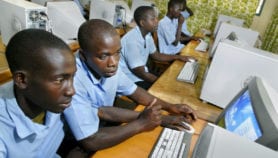By: T.V. Padma
Send to a friend
The details you provide on this page will not be used to send unsolicited email, and will not be sold to a 3rd party. See privacy policy.
[NEW DELHI] India has tumbled 18 places to 81st in a ranking of the technology capabilities of 91 countries, published online in Scientometrics this month (7 September).
The other three emerging economies — Brazil, China and South Africa — are running neck and neck halfway up the list, according to the ‘technology achievement index’, which covers 2002 to 2009.
The index, prepared by Anthony Nasir and colleagues at the Pakistan Council for Science and Technology, assesses national capabilities in creating and diffusing new technologies, diffusing older ones, and developing skills in using them. It focuses on the ability to create and use technology, and not on the technology itself.
The rankings put Brazil at number 53, slightly up from 56 in 2002; China slipped to 54 from 42; and South Africa is up to 55 from 58.
Korea is first, up from ninth in 2002, followed by Finland and Sweden. The United States came eighth and the United Kingdom ninth.
Indicators of technology creation included patents, royalty receipts and licence fees. Technology diffusion was assessed by the number of telephone, mobile phone and Internet users, and by technology exports and power consumption. Skills were measured by recruitment in the science, engineering, manufacturing and construction sectors.
The index identified a group of "dynamic adopters" — Brazil, China, India, Iran, South Africa and Turkey — countries that have devised effective ways to exploit new technologies. Among this group, Brazil, China and India "have developed important high-technology industries and technology hubs", while Brazil and China have also considerably improved their skills, the report said.
Malaysia performed well among developing countries, moving up from 26 to 23. Iran’s performance in technology creation and diffusion of recent innovations was significant, and it moved up three places to 43.
Marginalised countries include Pakistan, which has the world’s sixth largest population, according to the country’s own estimate, but ranks last among the 91 countries in skill development. This "is a major obstacle" to Pakistan’s economic growth and its participation in the global, knowledge-based economy, it said.
"It is a matter of concern that India has dropped in the index," said Gangan Prathap, director of the National Institute of Science Communication and Information Resources in New Delhi, which publishes scientific journals.
He said the achievement index gives a more "realistic" assessment of how a country is using technology than the Science Citation Index which rates scientific papers according to how frequently they are cited by other papers.
But Stevan Harnad, a cognitive scientist at the University of Southampton and a specialist in systems of measuring science performance, said that the outcomes of metrics can vary considerably depending on how the weightings are assigned. "If these weightings are assigned a priori — based on an assumed cause or theory and not experiment — they are arbitrary, and wildly different rankings can be generated using the same metrics."













